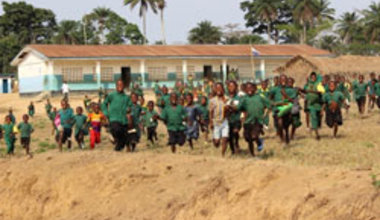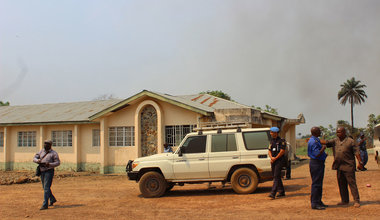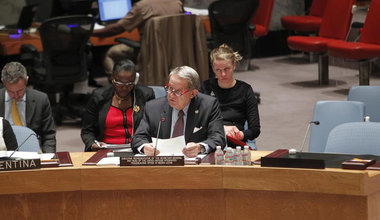African post-2015 dialogue launched with call for governance to build global transformational change
MIDRAND, SOUTH AFRICA, 12 October 2012 - As part of the global United Nations-led post-2015 development agenda consultations, the first in a series of dialogues on governance, including accountability by governments, concluded in South Africa today.
Ahead of the 2015 deadline to achieve the Millennium Development Goals (MDGs), this forum opens UN-led consultations with a wide cross-section of society on how governance can be integrated into the world's future development framework.
Involving an unprecedented consultation process, national dialogues with governments, civil society, the private sector, academia and other stakeholders will be held in at least 50 developing countries by early 2013, complemented by global consultations on key themes, including governance, food security, health, education and inequality.
Supported by the Government of Germany, the United Nations Development Programme (UNDP) and the Office of the High Commissioner for Human Rights (OHCHR), dialogues on governance will be held in different regions around the world over the coming months.
The two-day African Regional Dialogue on the New Development Agenda: Post-2015 Global Thematic Consultation on Governance was co-organized with the Pan African Parliament and took place with the support of the Government of South Africa.
International negotiations on a new development framework for the world must reflect the views and needs of the people, said the President of the Pan-African Parliament, the Hon Bethel Amadi.
The governance consultations will culminate in a final meeting in South Africa, scheduled for March 2013.
"The MDGs have improved the lives of millions, but there is still much more to be done to address extreme poverty, diseases and environmental crises," UNDP's Director of Democratic Governance, Geraldine Fraser-Moleketi, said. "Sustainable progress can only be achieved through inclusive and effective governance."
The UN has also set up an online platform – at www.worldwewant2015.org – to enable people in all parts of the world to share their views without necessarily needing to attend a post-2015 development agenda event. Young people, who will be the leaders of the future, are central to the consultations.
The input and outreach will feed into the Secretary-General's High-level Panel on Post-2015 which is due to submit its report to the Secretary-General in May 2013. The Panel is working to prepare a bold yet practical development vision to present to the Secretary-General for his report to be considered by UN Member States at the General Assembly in September 2013.
###
Contact information:
For interview requests and more information, please contact: Lucky Musonda (in Midrand South Africa): +27 73 222 4601, phumza.manqindi@undp.org; +27 12 354 8050
Join the conversation on Twitter using #governance2015 #SDGs
Follow us on Facebook at: UNDP and OHCHR
Notes to Editors
Since they were adopted by all UN Member States in 2000, the Millennium Development Goals (MDGs) have helped to set global and national priorities and prompt action on the ground. They have raised awareness and shaped a broad vision that remains the overarching framework for development work across the world.
Enormous progress has been made towards achieving the eight time-bound MDGs – covering poverty and hunger, education, gender equality, child mortality, maternal health, combatting HIV/AIDS and other diseases, environmental sustainability and a global partnership for development.
Yet progress has been uneven. Even if the MDGs are fully achieved, much unfinished business will remain. Therefore, accelerating MDG progress and preparing for the post-2015 UN development framework are part of the same effort.
The UN Development Group has been tasked with the responsibility of holding national consultations in more than 50 countries and to hold 11 global thematic consultations on key issues pertaining to the post-2015 development agenda. The results will be available online at: www.worldwewant2015.org.
 UN
UN




